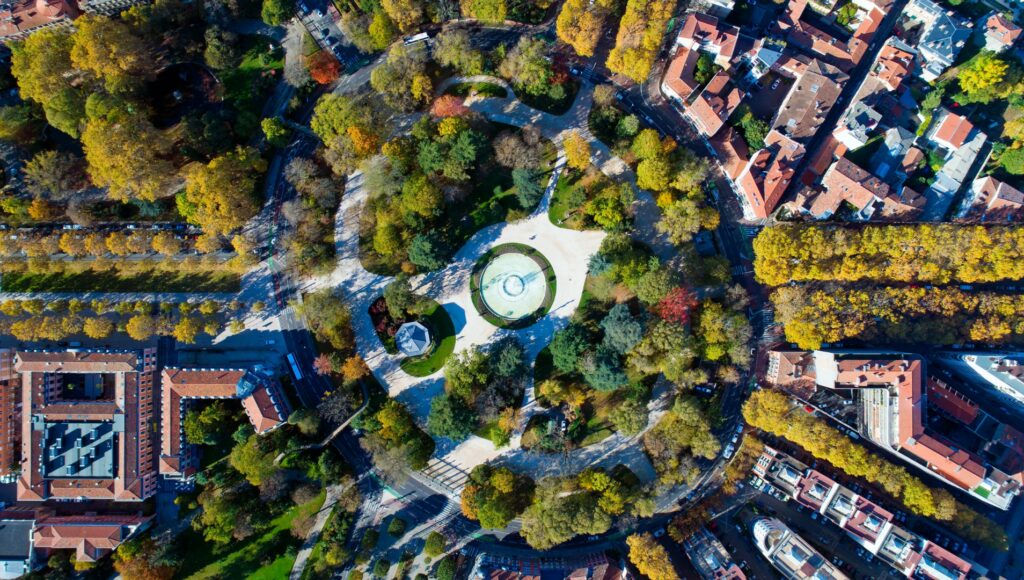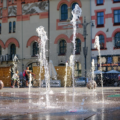Religion in the French presidential elections
Religion in the French presidential elections
French voters re-elected Emmanuel Macron in April 2022. In theory, French citizens should not vote according to their religion. But this time was different.
In April 2022, French voters re-elected Emmanuel Macron as President of the Republic.[1] He got the most votes during the two rounds of elections. In the first round, where candidates of all parties were represented, he collected almost 28% of the votes. In the second round, where he was only facing Marine Le Pen, he got 58.5% of the votes.[2]
This recent turn of events seems rather similar to the 2017 election.[3] However, the situation has evolved. First of all, the tie between the liberal Macron and protectionist Le Pen has significantly reduced.[4] Second of all, during the campaign, the role of religion escalated.[5]
Religious affiliation increasingly determines French presidential elections
The increasing role of religion in determining the citizens’ votes in the presidential election left many in awe. Indeed, the French Constitution states that politics and religion are indifferent to each other.[6] And yet, French citizens voted according to their religious affiliation.[7]
More than ever, Christians predominantly voted for Le Pen. In the second round of the presidential election, 55% of Catholic voters favoured Le Pen[8] – whereas ‘only’ 41.2% of the general voting population voted for her.[9] It was no less surprising that 35% of Protestant voters also favoured Le Pen. As it happens, the amount of Christian citizens who vote for the far right is growing.[10]
On the contrary, Muslims vastly voted for left-wing candidates in the first round of the presidential election. In the second round, they transferred their votes to Macron. Indeed, 85% of Muslim citizens voted for Macron.[11] [12]
How come religion played such an important role in the 2022 French presidential elections? Here are two main reasons why religious differences were enhanced in the vote.
#1 Rejection or acceptance of Islam has become a political marker
Illiberal right-wing parties like that of Le Pen successfully blended the notions of ‘Islam’ and ‘Islamic ideology’.[13] [14] They frame Islam, and any Muslim practices, as a threat to the Republic. For instance, the terms ‘territorial occupation’ and ‘annexation’ were popularised by far-right associations.[15] To the point that the so-called ‘replacement theory’, according to which Muslim citizens gradually replace other French citizens, was one of the main themes of the presidential campaign.[16]
In this context, far-right parties implemented the narrative according to which protecting Muslim citizens meant betraying France, its history and its people.[17] This forced all the other parties to express an opinion on the right of Muslim citizens – even though the French Republic theoretically is indifferent to its citizens’ religious beliefs.[18] Simply put, candidates needed to betray Republican values in order to not appear as traitors to the French Republic.
As a consequence, the rejection or acceptance of Muslim citizens became a political marker. Muslims and their allies had no choice but to vote for the candidates who were not excessively Islamophobic.[19] This limited the political spectrum that was available to them. Hence the very concentrated ‘Muslim vote’.
#2 Catholicism is developing into a political identity in itself
Between the two rounds of the presidential election, political scientist Raison du Cleuziou predicted that “the rightist radicalisation of Catholics is lasting.” He explains that the more France becomes secular, the more ‘moderate Catholics’ leave their Church. As a result, ‘traditional Catholics’ are now the last Catholics who identify as such. As they are the largest contingent of Catholics in France, they tend to equate Catholicism with traditionalist views of ‘the family’ and ‘the State’. Raison du Cleuziou writes that “secularisation in the society causes the Church to desecularise.”[20]
The trend toward the right and far right is indeed based on distrust toward a secular society. In the recent past, traditionalist Catholics have mobilised against what they experienced as secualt attacks on ‘the sacred’.[21] In 2013, the Manif pour Tous (Demonstration for all) demonstrated multiple times against the law on the so-called ‘marriage for all’. This national movement against the civil rights of LGBTQ+ people morphed into right-wing parties and associations.[22] Those organisations opposed abortion and medically assisted procreation, and defended the Catholic Church’s authority. In 2021, for instance, they insisted that members of the European Parliament greet each other with the term ‘Merry Christmas’ instead of ‘Happy holidays’.[23] Finally, the leaders of those Catholic organisations joined far-right candidates during the 2022 presidential election.[24] [25]
During the last 10 years, practising Catholics have invested plenty of energy in promoting traditionalism, especially in family policies. A lot of them felt that far-right candidates were the only ones who would echoe their mobilisations.[26] As a journalist put it, “it is the Catholics who evolved towards Le Pen, not the opposite.”[27] Therefore, there seems to be a “Catholic vote” in the French presidential election.
How long will religious people vote for protection?
Many religious leaders have expressed concerns about the religious segmentation of the votes. For different reasons, Muslims and traditionalist Christians feel that they need to elect the president that will protect them the most. Protection from each other (in the case of the ‘replacement theory’ and Islamophobia), and protection from the secular society (in the case of inclusive and family policies).
However, the religious reasons for this segmentation are only contextual. They stem from political narratives; political claims about Islam, political narratives about ‘the family’ or political controversies about the rights of minority groups. If the political context was to change, religious affiliations could play a much smaller role in determining the vote.
Still, some long-lasting trends could presage that belonging to a religious group will remain an important criterion for choosing a candidate. Indeed, as the two-party system disappears in France,[28] the conventional Socialist and Republican parties are replaced with an alternative between liberalism and illiberalism.[29] In such an atmosphere, citizens are likely to keep voting for protection.
Want to read more about similar topics? Go to the EARS Dashboard.
Sources
[1] Élection présidentielle 2022 – Actualités, vidéos et infos en direct
[2] 2022 French presidential election – Wikipedia
[3] 2017 French presidential election – Wikipedia
[4] Présidentielle. Depuis 2002, l’écart se resserre au second tour entre le président élu et les Le Pen
[5] Présidentielle 2022. Oui, la religion détermine le vote – Magazine Decideurs
[6] France’s Constitution of 1958 with Amendments through 2008
[7] Comment l’Ifop a-t-il sélectionné les répondants pour son enquête sur le vote par confession religieuse? – Libération
[8] 55% of Catholic voters favoured Le Pen in the second round of the presidential election. But if we only take practising Catholic voters into account, the percentage of Le Pen voters is even higher. See here: Comment l’Ifop a-t-il sélectionné les répondants pour son enquête sur le vote par confession religieuse? – Libération
[9] Until 2022, French Catholics systematically voted less for the far right than the national average. This presidential election, the situation has turned around for the first time since the end of World War 2. See here: La Croix – Yann Raison du Cleuziou : « La radicalisation droitière des catholiques est durable »
[10] Le vote des électorats confessionnels au second tour de l’élection présidentielle
[11] While ‘only’ 55% of Catholics and 65% of Protestants voted for Macron. See here: Le vote des électorats confessionnels au second tour de l’élection présidentielle
[12] Le vote des électorats confessionnels au second tour de l’élection présidentielle
[13] Islam : avec Marine Le Pen, la persécution au programme | Mediapart
[14] Le Pen promotes anti-Muslim laws like the prohibition of the hijad outside the home, the ban of halal foods, and the abolition of Muslim associations. The restriction of the religious rights of Muslim citizens would soon impact Jewish and Christian citizens too. See here: Islam : avec Marine Le Pen, la persécution au programme | Mediapart
[15] La construction des prières de rue comme problème public | Cairn.info
[16] EARS – Identity politics: Why the French elections seem closer than ever before
[17] Islam : avec Marine Le Pen, la persécution au programme | Mediapart
[18] Débats sur l’islam en France: «Il y a une tenaille identitaire dans notre pays»
[19] Emmanuel Macron et Marine Le Pen s’opposent sur la liberté religieuse
[20] La Croix – Yann Raison du Cleuziou : « La radicalisation droitière des catholiques est durable »
[21] L’avenir de la revendication d’une pleine égalité des sexes dans l’Église du pape François | Cairn.info
[22] Manif pour tous, militants catholiques, Veilleurs… Qui défile sous la bannière de “Marchons enfants” pour s’opposer à la PMA pour toutes ?
[23] The Vatican’s response to reports of sexual abuse in France – EARS
[24] Jean-Frédéric Poisson soutient Eric Zemmour et renonce à sa candidature | Le HuffPost
[25] François-Xavier Bellamy apporte son parrainage à Eric Zemmour
[26] «Le vote Zemmour a servi de sas» – Le Courrier
[27] Jean-Yves Camus : « Ce sont les catholiques qui ont évolué, pas Marine Le Pen »
[28] Dynamique de la recomposition politique. La fin du bipartisme d’alternance. Analyse comparée des votes Outre-mers et France






